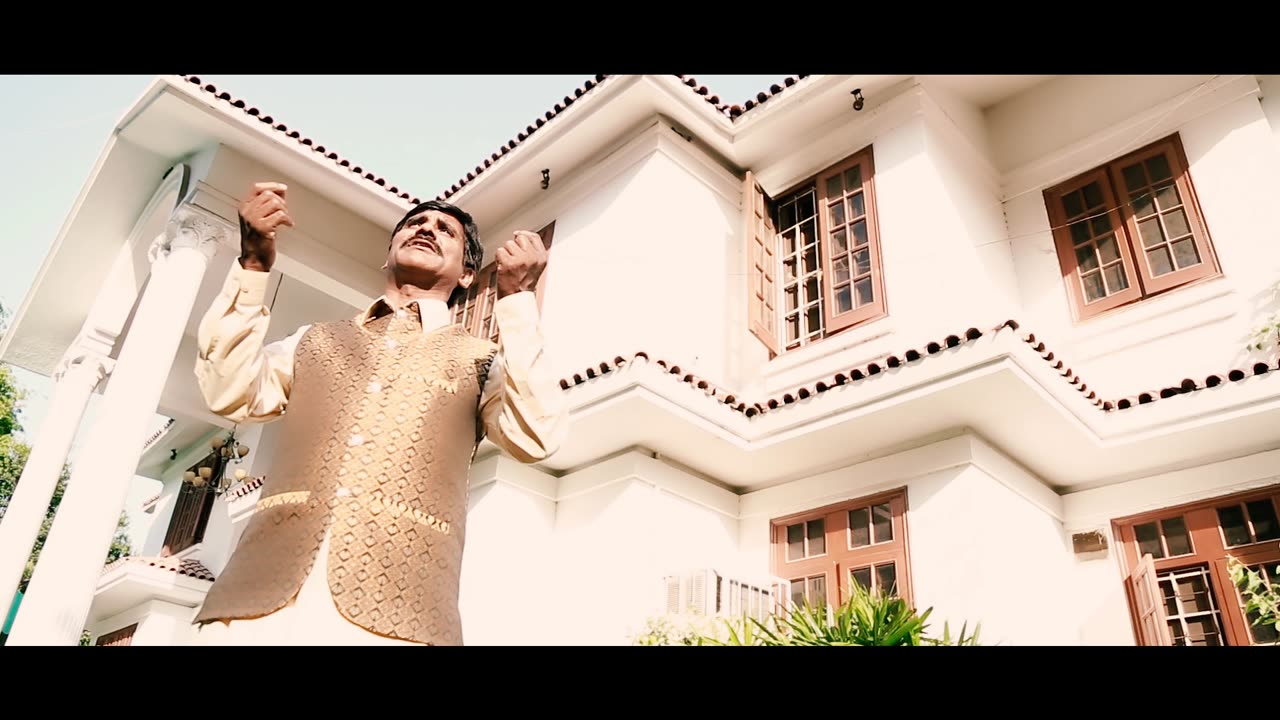Premium Only Content

sady naal bewafa sanjha muka gaya
The video opens with a picturesque view of the rural Saraiki landscape. Lush green fields, rustic villages, and colorful attires set the backdrop. The camera pans across scenes of farmers working in the fields, women engaged in traditional crafts, and children playing traditional games.
As the music starts, a melodious Saraiki tune fills the air. The rhythm is upbeat and infectious, reflecting the joyful spirit of the region. The song's lyrics often revolve around themes of love, local folklore, and everyday life.
The video showcases local artists dressed in vibrant traditional Saraiki attire. The women wear intricately embroidered dresses with bright colors and reflective jewelry, while the men don colorful turbans and traditional shalwar kameez. The choreography blends traditional dance moves with contemporary elements, creating a dynamic and visually appealing performance.
Throughout the video, there are shots of mouthwatering Saraiki cuisine being prepared and enjoyed. Traditional dishes like "Sajji" (spit-roasted meat), "Daal Chawal" (lentils and rice), and various types of bread are showcased, emphasizing the importance of food in Saraiki culture.
As the song progresses, the video transitions to showcase the warmth of Saraiki hospitality. People gather in large, lively gatherings, dancing and celebrating with infectious energy. The sense of community and togetherness is evident, reflecting the values of the Saraiki people.
The video reaches its climax with a crescendo of music and dance. Colorful confetti fills the air as dancers perform intricate routines, and the camera captures the genuine smiles and enthusiasm of the participants. The video ends with a breathtaking aerial shot of the Saraiki landscape at sunset, leaving viewers with a sense of awe and appreciation for the region's beauty.
Overall, a Saraiki video song encapsulates the essence of the Saraiki culture, combining traditional elements with modern flair, vibrant visuals, and foot-tapping music. It's a celebration of heritage, unity, and the indomitable spirit of the Saraiki people.
-
 UPCOMING
UPCOMING
Sarah Westall
1 hour agoComparisons: Maui Fire and North Carolina Hurricane – Land & Resource Grabs w/ Michelle Melendez
4871 -
 1:00
1:00
Congresswoman Harriet Hageman
4 hours agoCongresswoman Harriet Hageman Rumble Rollout
9.69K26 -
 3:13:02
3:13:02
Scammer Payback
3 hours agoCalling Scammers Live
19.7K1 -
 13:08
13:08
RealitySurvival
8 hours agoNorth American Union - Why THIS IS A BAD Idea!
1.64K7 -
 DVR
DVR
Redacted News
3 hours agoWEF is in FULL PANIC MODE over Trump, LA wildfires a failure of liberal government | Redacted News
79.5K128 -
 DVR
DVR
vivafrei
8 hours agoInterview with Enrique Tarrio's Mother - Viva Frei Live
71.8K20 -
 53:07
53:07
Candace Show Podcast
3 hours agoBlake Lively VS Justin Baldoni: The Revenge of #MeToo | Candace Ep 128
64.2K70 -
 1:59:04
1:59:04
Darkhorse Podcast
6 hours agoFires, Facebook & Free Speech: The 259th Evolutionary Lens with Bret Weinstein and Heather Heying
48K20 -
 1:42:19
1:42:19
Film Threat
5 hours agoHOLLYWOOD IS ON FIRE! | Hollywood on the Rocks
21.3K3 -
 9:53
9:53
Gun Owners Of America
5 hours agoConstitutional Concealed Carry Reciprocity Introduced to Congress!
38.5K9